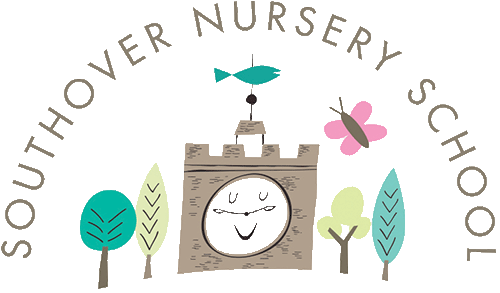Safeguarding Policy
Safeguarding and Child Protection Policy
This policy is constantly reviewed and updated to ensure it remains in line with statutory guidance. Its effectiveness is monitored through staff and management reviews, supervisions, and feedback to ensure appropriate knowledge and awareness are in place.
Copies are available to all staff and parents and can be accessed on the nursery website.
PART 1: Safeguarding Children and Child Protection Procedures
Introduction
Southover Nursery is dedicated to the support, development, and promotion of high-quality care and education for the benefit of our children, families, and community.
We are committed to safeguarding children and promoting their welfare by proactively engaging with children, parents, carers, and colleagues to ensure children are safe and achieving their potential.
All staff, students, and volunteers have a responsibility to safeguard children, be vigilant, and report any safeguarding concerns in line with this policy and supporting policies, including:
•Online Safety Policy
•Promoting Positive Behaviour Policy
•Data Protection and Confidentiality Policy
•Recruitment, Selection, and Suitability of Staff Policy
•Emergency Lockdown Policy
•Respectful Intimate Care Policy
•Inclusion and Equality Policy
•Nappy Changing Policy
•Late Collection and Non-Collection of Children Policy
•Special Educational Needs and Disabilities (SEND) Policy
•Lone Working Policy
•Staff Code of Conduct
•Looked After Children Policy
•Supervision of Children Policy
•Low-Level Concern Policy
•Supervision of Visitors Policy
•Missing Child from Nursery Policy
•Volunteers Policy
•Outings Policy
•Whistleblowing Policy
•Mobile Phone and Electronic Device Use Policy
•Young Workers Policy
•Security Policy
We ensure all staff, students, and volunteers have the necessary knowledge and skills to carry out their duties. They are trained on how this policy and related procedures support them in safeguarding children.
All breaches of this policy must be reported to the Designated Safeguarding Lead (DSL).
Policy Intention
This policy:
•Clarifies that all staff, students, and volunteers have a responsibility to safeguard children and protect them from harm.
•Raises awareness of safeguarding and welfare procedures if a child protection issue arises.
•Applies to all children up to 18 years old, whether living with families, in state care, or independently.
Safeguarding and promoting the welfare of children includes:
•Providing early help and support when problems emerge.
•Protecting children from maltreatment, including online.
•Preventing impairment of children’s mental and physical health.
•Ensuring safe and effective care for children.
•Promoting family-based care where appropriate.
•Taking action to secure the best outcomes for children.
Child Protection is an integral part of safeguarding and refers to:
•Protecting specific children who are suffering or likely to suffer significant harm (including online abuse).
To safeguard children, we will:
•Develop a safe culture where staff feel confident raising concerns.
•Train all staff to identify signs of abuse (including subtle indicators).
•Share information with other agencies where necessary.
•Promote:
•Listening to children
•Positive images of children
•Independence and autonomy
•Safe environments
•Tolerance and respect for diversity
•Early intervention for children and families in need
Designated Safeguarding Lead (DSL)
The DSL is responsible for:
•Overseeing safeguarding procedures
•Coordinating staff training
•Acting as a source of advice and support
•Maintaining accurate, secure records
•Ensuring compliance with legislation
•Referring concerns to external agencies
Current DSLs:
•Designated Safeguarding Lead: Charlotte Hasan
•Deputy DSL: Clare Moore
If neither DSL is available, contact the Local Safeguarding Partnership (LSP).
PART 2: Definitions of Abuse
Types of Abuse:
1.Physical Abuse – Hitting, shaking, poisoning, etc.
2.Emotional Abuse – Persistent emotional maltreatment.
3.Sexual Abuse – Forcing or enticing a child into sexual activities.
4.Neglect – Failing to meet a child’s basic needs.
Other Forms of Abuse:
•Child-on-child abuse (bullying, sexual harm).
•Fabricated or Induced Illness (FII).
•Female Genital Mutilation (FGM).
•Breast Ironing.
•Domestic Abuse.
•Honour-Based Abuse.
•Child Trafficking and Modern Slavery.
•Extremism and Radicalisation.
•Online Safety Risks.
All concerns must be reported in line with safeguarding procedures.
PART 3: Reporting Procedures
Steps to Report Concerns:
1.Immediately inform the DSL. If unavailable, contact the Deputy DSL, LSP, NSPCC, social services, or police.
2.Document the concern, including:
•Child’s name, age, and address.
•Date, time, and location of observation/disclosure.
•Exact words spoken by the child.
•Any injuries, behaviours, or incidents observed.
3.DSL assesses the concern and contacts external agencies if necessary.
4.Confidentiality is maintained, but child welfare takes priority.
5.If no action is taken, escalate the concern to social care or the police.
All allegations against staff are handled in line with Local Authority Designated Officer (LADO) procedures.
PART 4: Recruitment, Induction, and Training
Safer Recruitment:
•All staff undergo DBS checks.
•References and identity verification are mandatory.
•Clear recruitment processes prevent unsuitable candidates.
Induction and Training:
•All new staff receive safeguarding training.
•Annual safeguarding updates ensure compliance.
•Apprentices and students receive protection under this policy.
Legal Framework
This policy aligns with UK laws and statutory guidance, including:
•Children Act (1989 & 2004)
•Working Together to Safeguard Children (DfE, 2024)
•Keeping Children Safe in Education (DfE, 2024)
•The Domestic Abuse Act (2021)
•Counter-Terrorism and Security Act (2015) – Prevent Duty
Useful Contacts
Emergency Services:
•Police (Emergency): 999
•Police (Non-Emergency): 101
•Child Exploitation & Online Protection (CEOP): www.ceop.police.uk
Support Services:
•NSPCC Helpline: 0808 800 5000
•Childline: 0800 1111
•National Domestic Abuse Helpline: 0808 2000 247
Policy Updated: February 2025
Review Due: August 2025
Author: Charlotte Hasan – Manager & DSL
